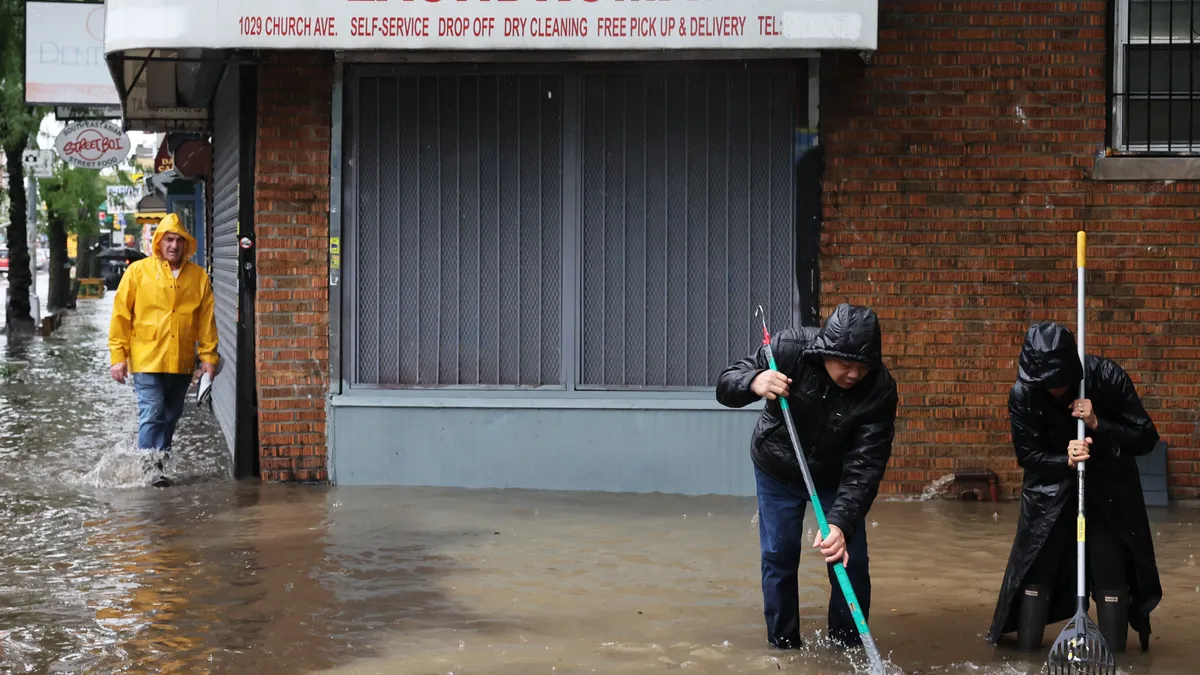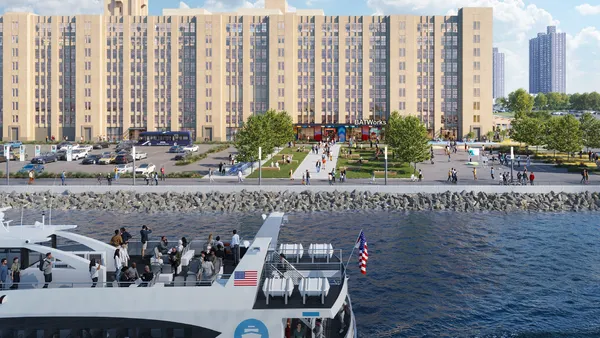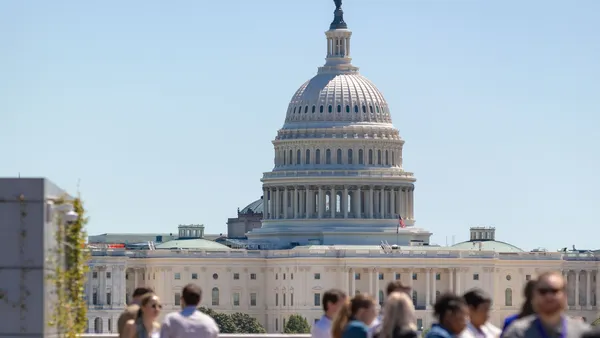Dive Brief:
- New York City kicked off a “Rainproof NYC” initiative on Jan. 9 to identify innovative ways the city can address the impacts of increased heavy rainfall.
- City agencies, nonprofits and other stakeholders will meet regularly over the next six months in three working groups that will focus on addressing gaps in infrastructure and risk management, developing an equitable residential buyout program and building capacity among various stakeholder groups.
- Final recommendations, which the city expects to release in late spring or early summer, will inform the city’s forthcoming stormwater flood adaptation plan and its exploration of voluntarily relocating residents and acquiring land to protect against future floods.
Dive Insight:
The dangers of heavy rain in New York City were well-documented during a tropical storm that hit the city last fall, shutting down subway lines, damaging notoriously vulnerable basement apartments and turning streets into streams. The impacts were so severe that New York City’s comptroller launched an investigation into the city’s management of extreme rainfall.
The city is already working on multibillion dollar stormwater projects to install new storm sewers, build green infrastructure and expand “bluebelts,” the natural drainage corridors such as streams and ponds, to better handle runoff precipitation. The city is also tackling sudden, heavy “cloudburst” downpours by clustering multiple stormwater management projects in particularly vulnerable neighborhoods.
“Environmental threats are coming at us from all angles, and we must be innovating ways to incorporate natural features into our built environment,” Elijah Hutchinson, executive director of the Mayor’s Office of Climate & Environmental Justice, said in a statement. The city’s chief climate officer, Rohit T. Aggarwala, said in a statement that “addressing the climate crisis must be a collaborative process that involves not only experts and elected officials, but also the community members who are directly impacted.”
The city said it solicited participants for the working groups through a public open-call application in December, making selections based on lived or professional expertise, diversity and “whether they bring a new perspective to the conversation.” Working group members include global organizations like the Environmental Defense Fund; local groups focused on social services, housing and the environment; sustainable development consulting firm Arup and representatives from nearly 20 government agencies. A city agency lead and a nonprofit partner will co-facilitate each working group.











